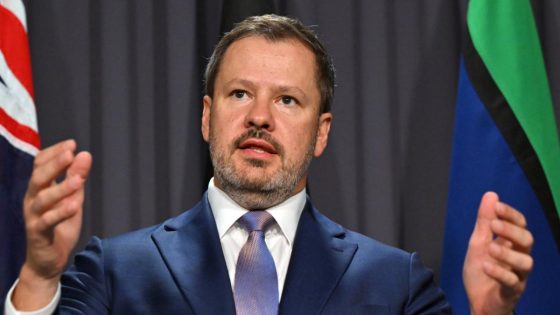The $8 billion potential of the nation’s RNA sector is set to be unleashed with a new blueprint drawn up to seize the golden medical science opportunity.
Industry and Science Minister Ed Husic will on Tuesday unveil a new strategy to guide the development of the industry during a visit to Perth.
The technology rose to prominence during the COVID-19 pandemic with messenger RNA used in the Pfizer and Moderna vaccines.
RNA — or ribonucleic acid — carries genetic information to where proteins are made.
“When you think about a therapeutic revolution — RNA technologies are at the front of the pack,” Mr Husic told The West.
“It is going to be able to help treat some of the most serious, life-challenging diseases that people face.
“From cancer through to Alzheimer’s, liver disease. Things that have been too hard to crack — RNA has the ability to fix.”
The 34-page blueprint identifies five goals to unlock the sector’s untapped potential, based around connecting the disparate parts of the industry, growing the workforce and strengthening international ties.
The Federal Government has set aside $1.5 billion of its $15 billion National Reconstruction Fund for medical sciences — some of which could go to RNA initiatives.
“I deliberately pushed for that ($1.5 billion) because we’ve got the know-how (in medical science) but we don’t just translate enough and we go and manufacture our medicines elsewhere off the back of an Australian idea.”
Asked why he was announcing the blueprint in Perth, given RNA research is often associated with Melbourne and Sydney, Mr Husic said: “If you think you’ve got a national blueprint that doesn’t involve WA then you’re kidding yourself”.
More than 200 human RNA medicines are under development globally, with the value of the technology projected to reach up to $US107 billion ($158 billion) by 2030.
It could add up to $8 billion to Australia’s GDP in the decade to 2033, according to independent modelling.
Moderna’s Australia and New Zealand general manager, Michael Azrak, welcomed the Federal Government’s support of the sector.
The US-based company is building a large-scale mRNA vaccine manufacturing hub in Melbourne to help prepare Australia for the next pandemic.
“We believe mRNA platform technology holds immense potential to address some of the world’s most pressing health challenges,” he said.
“We commend the Australian Government for its commitment to this promising scientific field, which will significantly benefit the nation’s health and wellbeing.
Source Agencies



